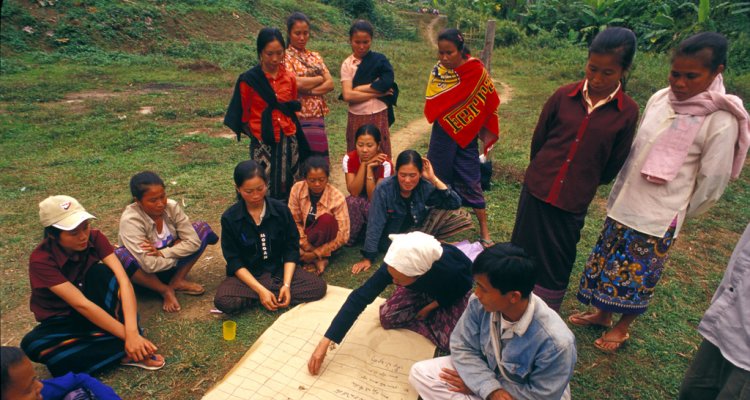
About Intersectional Gender Studies
At Wageningen University & Research we especially focus on the intersectional gender aspects in the domains of food, agriculture, rural societies and rural environments, while integrating how the gender dimension intersects with other social dimensions of (in)equality. As scientists, we work on advancing the development and teaching of intersectional gender studies knowledge and theory.
From an interdisciplinary perspective we look at processes as well as outcomes by studying historical roots, critically analysing current situations and proposing alternatives for development. This approach includes a decolonizing perspective on the fields under study.
Our focus
As part of the intersectional approach we consider how the gender dimension intersects with the social dimensions of race / ethnicity, class / wealth, religion, age / generation, locality, health and civic status etc.
Important areas of research and teaching are, for instance, climate change, management of bio-diversity and natural resources, agricultural innovation, organic farming, environmental sustainability as well as agri-food systems, agricultural and rural livelihood and viability, agricultural and rural development policies, feminisation / masculinisation of agriculture, and rural outmigration and population control.
Organisation
At the moment Wageningen University and Research has hardly any scholars who are appointed with the mandate to further professionalise in intersectional gender studies and integrate this perspective into WUR domains.
There is a growing group of scholars who take part in projects, teaching or other activities while integrating intersectional gender aspects. We are actively inviting and welcoming all invested scholars to present their projects, courses and profiles on this website.
We also cooperate with many others outside the WUR as well, both scholars, organisations and communities who take an interest in intersectional gender issues.
We also want to make sure that knowledge and insights on intersectional gender issues are shared and discussed as widely as possible through our collaboration with organisations and scientists engaged in policy and development arenas.